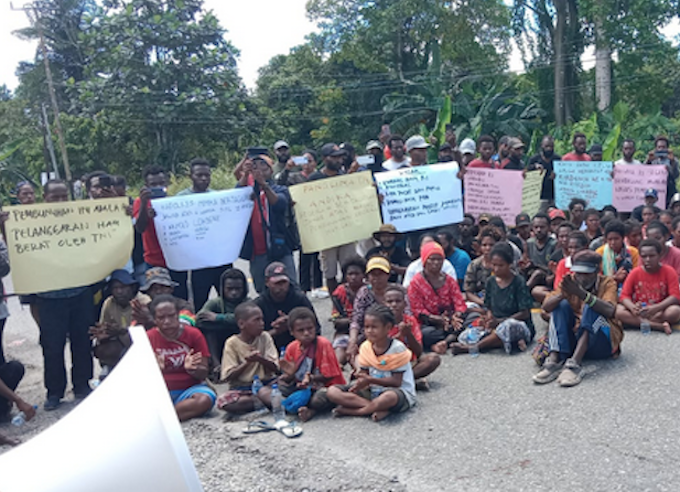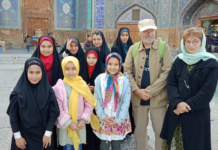
COMMENT: By Robbie Newton of Human Rights Watch
Authorities arrested six Indonesian soldiers last week suspected in the killing and mutilation of four Indigenous Papuans in Indonesia’s West Papua province.
The bodies of the four men were discovered on August 26 by local residents of Iwaka village, outside the town of Timika, in sacks floating down the Pigapu River.
The victims were identified as Irian Nirigi, a local village leader, Arnold Lokbere, Atis Tini, and Kelemanus Nirigi. It is not clear why the men were killed.
- READ MORE: Mutilation of Nduga residents in Timika motivated by robbery
- Atrocities in Papua a result of phobia and stigma against Papuans: Council of Churches
- Timika murder: Family of victims search bodies without help from police
- Killing of four West Papuans ‘brutal reminder of reality’ under Jakarta rule, says Wenda
- Other reports on Papuan human rights
The authorities claimed they were insurgents and were allegedly on their way to meet someone in Timika to purchase weapons.
The men’s families deny this, saying they were carrying money from the village fund to purchase agricultural equipment. What is clear is the money the men were carrying is gone.
The killings come at a time of rising tensions between the Indigenous people of Papua and the Indonesian security forces, with incidents of violence becoming increasingly frequent and deadly.
Last month, unidentified persons shot dead nine non-Papuan civilians in Nduga, where the Indonesian government maintains a heavy military presence.
Anti-racism protests
This violence follows a series of anti-racism protests using the hashtag #PapuanLivesMatter, responding in part to President Joko Widodo’s contentious move to divide Papua and West Papua into four separate provinces.
Activists are raising concerns that the plans will lead to the further militarisation of the region, with critics describing it as a ploy to “divide and conquer” the Indigenous Papuans.
President Jokowi, once celebrated for releasing Papuan political prisoners in 2015, leads a government responsible for systemic discrimination against Papuans.
Killing of four West #Papuans ‘brutal reminder of reality’ under #Jakarta rule, says Wenda #AsiaPacificReport @westpapuamedia @westpapuanews @BennyWenda #HumanRights #HumanRightsViolations #atrocities #PapuanLivesMatter @PNGAttitude @FreeWestPapua https://t.co/LcK8pKhBzQ pic.twitter.com/ypfxF9zm2Y
— David Robie (@DavidRobie) August 31, 2022
Last week he was in Timika, in part to visit the Freeport project and surrounding areas, which is the site of the largest gold mine in the world.
It is important that the authorities fairly and appropriately prosecute the soldiers arrested and any others implicated in the killings.
But the Indonesian government needs to address the deteriorating human rights situation in Papua by conducting an independent and impartial investigation into the involvement of the security forces more generally in atrocities against Indigenous Papuans, and keeping its promise to invite United Nations human rights monitors to visit the region.
Robbie Newton is Asia coordinator of Human Rights Watch.











































